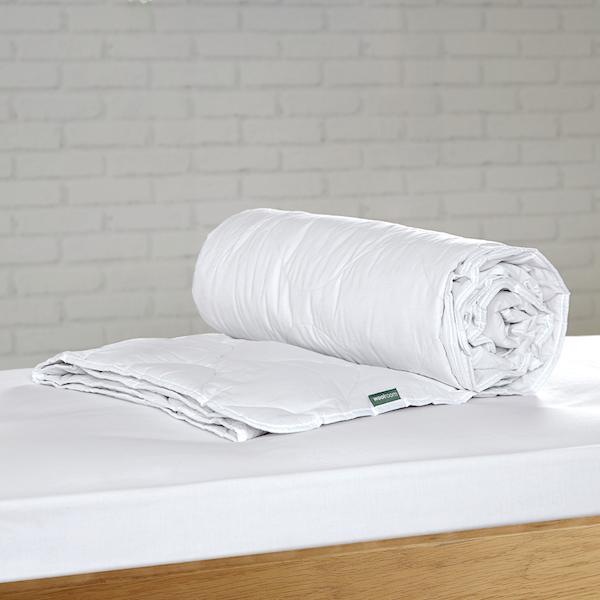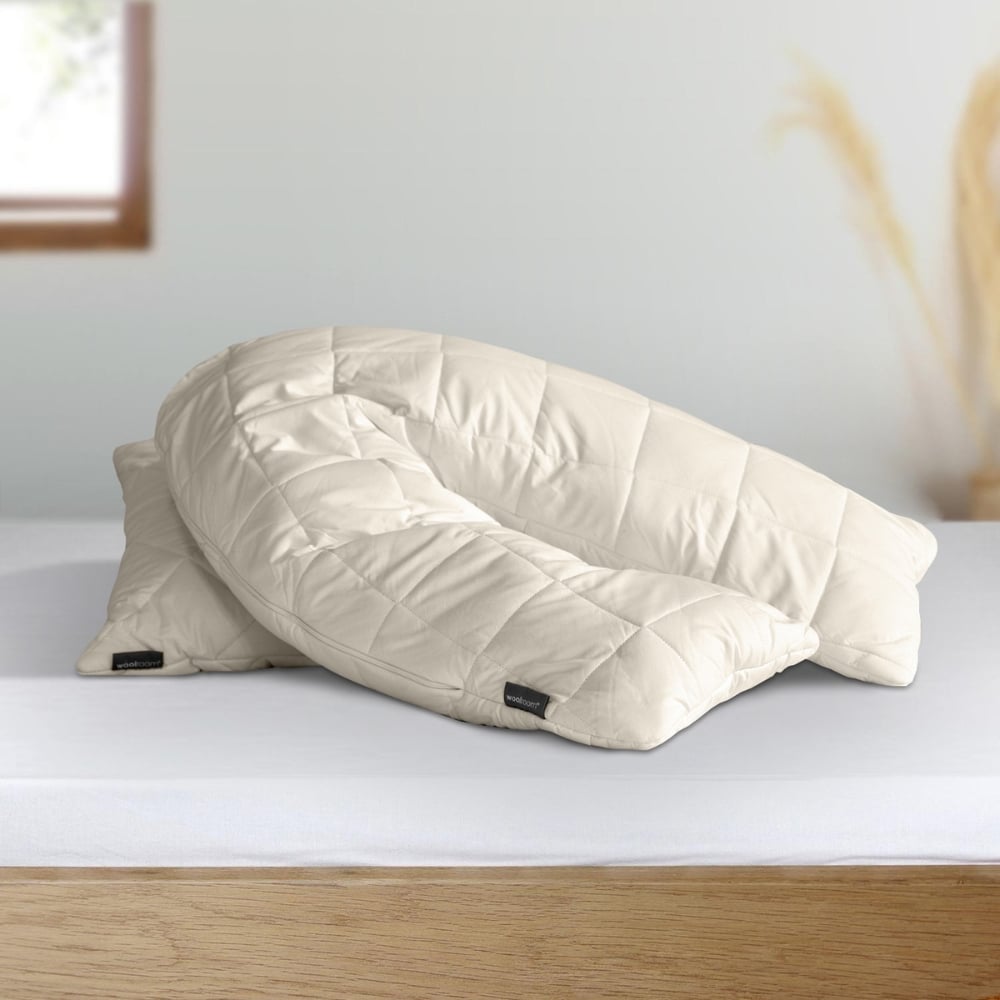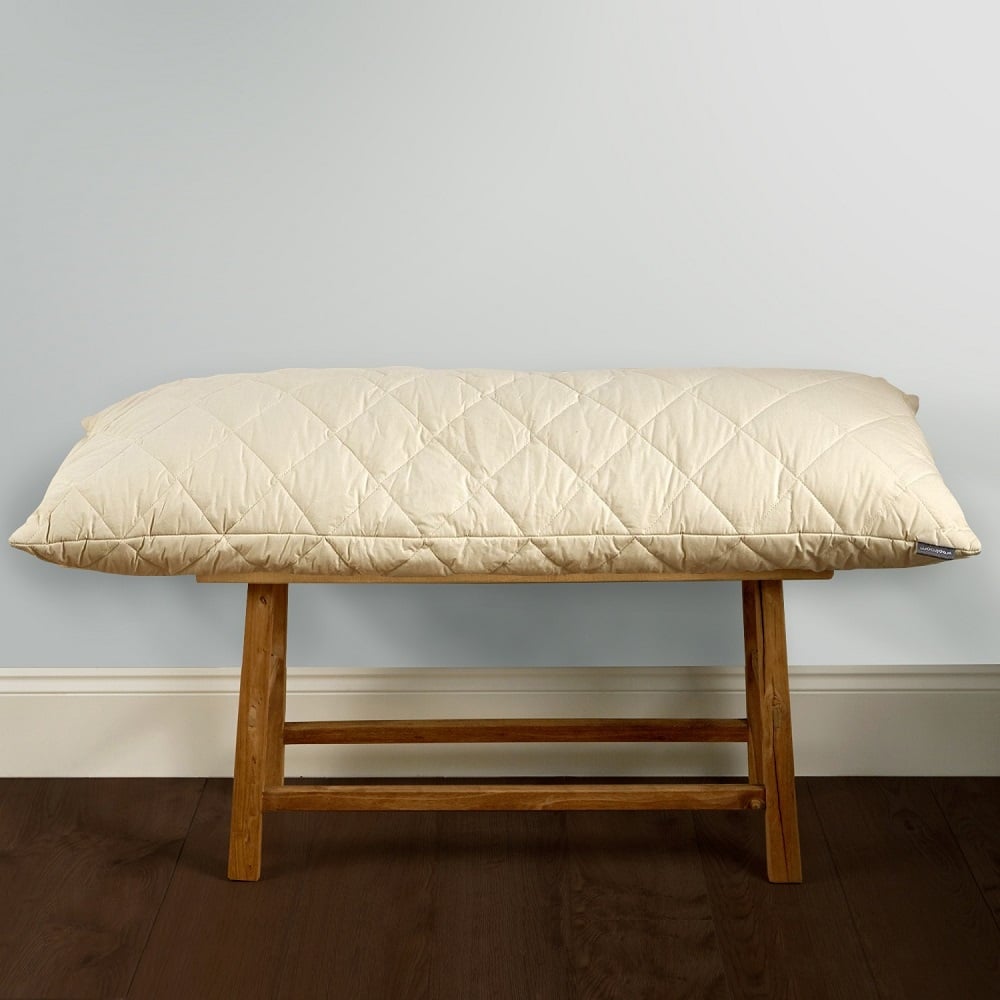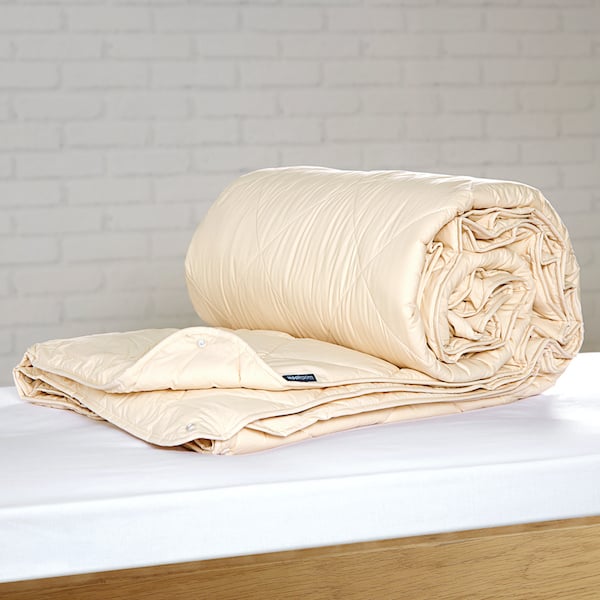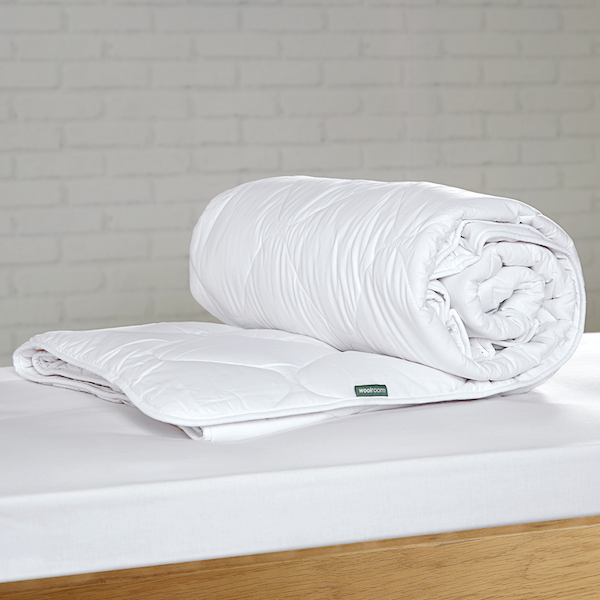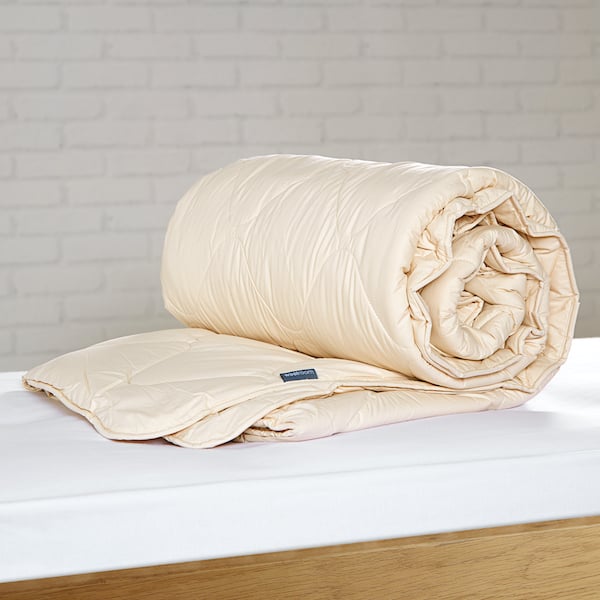Controlling your sleep temperature is a sleep hygiene best practice. But what happens if you regularly find yourself waking up sweaty and overheated? It’s more common than you might think. Fortunately, there are simple ways to help combat overheating at night. Here’s what to understand about the relationship between sleep and body temperature, why you might be overheating in bed and what you can do to stay cool and comfortable for more restful nights.
Why is your body temperature so high at night?
Here’s the good news - your body temperature is actually designed to fluctuate, and it’s all thanks to the hypothalamus. This is the part of your brain that regulates temperature. It essentially works like a thermostat, responding to internal and external factors to keep your body within a degree or two of 98.6 degrees Fahrenheit.
While you maintain a pretty steady daytime temperature, it dips by roughly two degrees in anticipation of sleep and rises again in the morning in preparation for waking up. That’s a good thing. In fact, a fluctuating sleep temperature is an essential player in your circadian rhythm, the body’s 24-hour internal clock. And get this - research shows that people often align their bedtime to the time their body temperature dips the most, even if they don’t know it.
The Science Behind Night Sweats and Overheating
The hypothalamus releases chemicals and hormones and coordinates with other parts of your body that are responsible for body temperature control, such as your skin, sweat glands and blood vessels. Together, they allow your body to warm up or cool down as needed to maintain a constant healthy temperature, typically through shivering and sweating.
On its own, your body typically knows what it’s doing. But that’s not always the case, and factors like your bedding, bedtime routine, health conditions, age, medications you might be taking and more can tip the balance. Sometimes, the hypothalamus itself struggles with body temperature control, making you feel overly warm. It’s particularly problematic when it happens at night, leading to uncomfortable night sweats and worse, disrupted sleep.
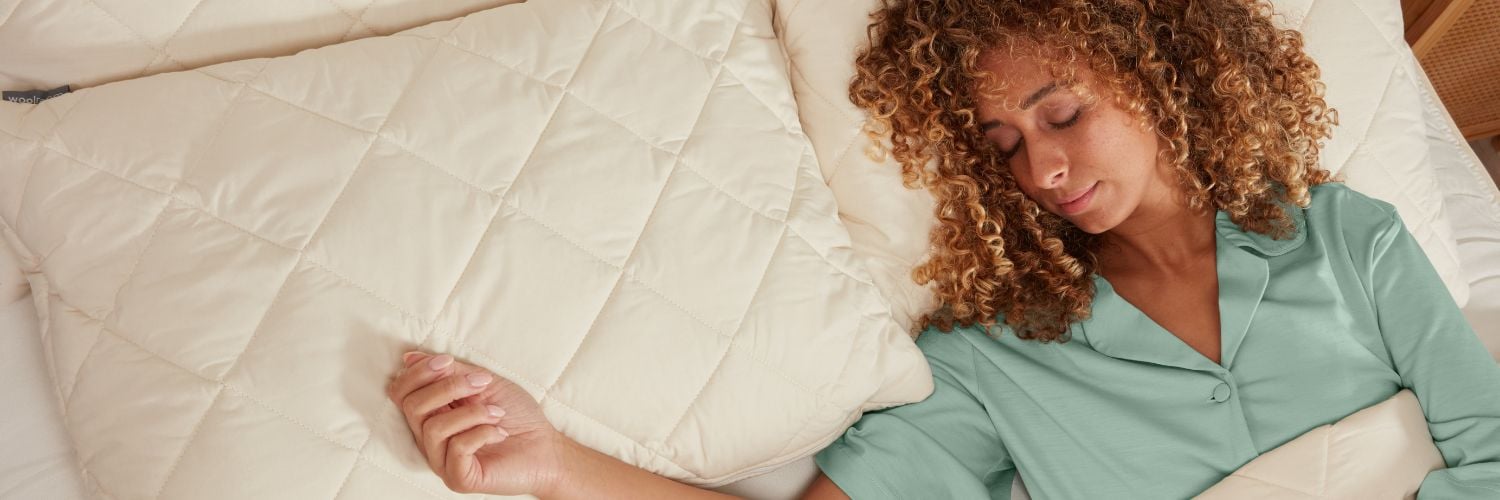
8 Reasons you Experience High Body Temperature
Internal and external factors can both contribute to overheating at night. To resolve the issue, it’s important to figure out what might be causing it. If you’re waking up hot at night, it could be related any of the following:
- Female hormones have a lot to answer for. As a woman, you may notice that in the days leading up to your period, your temperature rises slightly. While it might not be much, even a slightly elevated body temperature can affect sleep and leave you feeling hotter than normal under the covers.
- At a more extreme level, when you reach perimenopause and menopauseyou may find that erratic estrogen hormones lead to blood rushing to blood vessels under the surface of your skin. This will cause your skin to flush and can result in hot flashes at any time of the day or night. But many women find that these are more disruptive at night.
- Pregnancy can cause you to struggle with body temperature control, and once again, you can blame the high levels of estrogen circulating around your body.
- A cold or fever may lead to high body temperature at night as your body fights to rid itself of infection.
- Certain drugs, such as prescribed antidepressants and other psychiatric medications, can lead to high body temperatures at night.
- Some medical conditions, such as thyroid disease and certain types of cancer, can disrupt the number of hormones that are released into your body to regulate metabolism and other processes. This might lead to unwanted symptoms such as sweating or an increased sensitivity to temperature. It can be worse at night, since the body’s temperature naturally rises in the early hours of the morning.
- Evening activities can also affect body temperature before bed. High-intensity exercise within an hour of bedtime can elevate your heart rate and temperature, which could impair sleep onset. The same is true of vigorous sex and even high levels of stress. And if you’re the type to enjoy an evening cappuccino, be aware that caffeine is likewise associated with a higher core body temperature.
- Sharing the bed with a partner or a pet can increase the temperature in your bedding and your bedroom. The more bodies, the faster things heat up.
If you’re actively taking steps to manage your nighttime temperature and you’re still struggling, it’s a good idea to speak with your physician to rule out any

How to regulate body temperature for better sleep
While there’s not much you can do about the natural occurrences of your body, there are a few lifestyle changes you can make that will help with body temperature control at night. Your sleep environment has an enormous impact on your body temperature, and if you don’t thread the needle just right, chances are high that you’ll wake up because you’re either too hot or too cold. Here are some things to consider if you’re consistently waking with a high body temperature at night:
1 - Manage room temperature. A dip in temperature is useful to help your body ready itself for sleep. That’s why a cool room can be beneficial. In fact, experts generally recommend keeping your bedroom around 65 degrees Fahrenheit. Depending on where you live, that might mean cracking a window or running the air conditioner. Keep layers on hand though, so that if you awake feeling chilly later in the night you can pull another blanket over yourself.
2 - Consider your mattress materials and construction. Some types of mattress can make body temperature control more difficult than others by trapping body heat.
- Memory foam in particular has a reputation for causing high body temperatures during sleep. Why? The material responds to heat and pressure to mold around the body for its signature conforming feel. That can be beneficial for pressure relief and support, but the design traps heat, meaning overheating is a common side effect.
- Latex mattresses can be a great alternative. Latex offers comparable pressure relief to memory foam without trapping heat. Plus, the material lends mattresses a gentle buoyancy that works well for a range of sleep styles. All-foam mattresses, even those made without memory foam, also tend to trap heat more readily than hybrid constructions. That’s because they lack a coil layer, which naturally promotes airflow. Regardless of construction, adding a wool mattress topper to your sleep setup can be a smart move.
- Wool mattresses will naturally regulate your body temperature. This means means you’re much less likely to be woken up by a hot sweat in the middle of the night.
3 - Choose bedding and sleep clothes with care. Just like your mattress, your bedding and pajamas can be incredibly insulating. Non-breathable bedding and bed clothes (such as those made from polyester and even down) trap body heat between the sheets, exacerbating any problems of high body temperature while you sleep - and making it more likely that you wake up feeling hot and uncomfortable.
Instead, opt for breathable wool bedding and lightweight pajamas that will help with your body temperature control and reduce the likelihood of night time awakenings from overheating. By choosing bedding that helps to keep you cool when you’re warm and warm when you’re cool, you’ll be much less affected by spiking temperatures overnight. And if you have a bed partner, try using separate blankets as well.
Discover the cooling power of wool bedding
There are a number of high-tech and pricey ways to beat the heat. But before you invest in a bed cooling system or resign yourself to cranking up the A/C, consider switching out your bedding or even upgrading your mattress. Wool has unique properties that make it great at regulating temperature. It’s a breathable material that naturally manages moisture, keeping you dry and cool even on the warmest nights. Upgrading to a wool mattress pad, comforter and/or pillow could be all you need to manage your sleep temperature and enjoy more restful nights.






